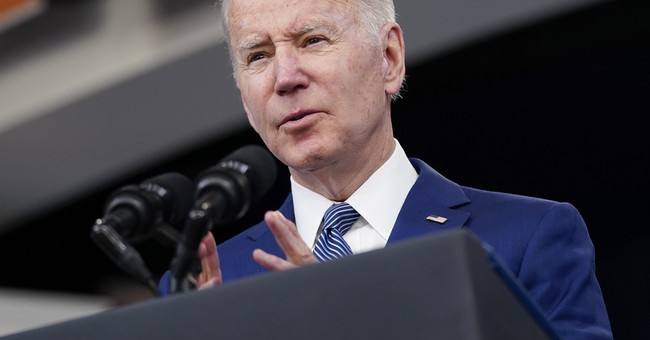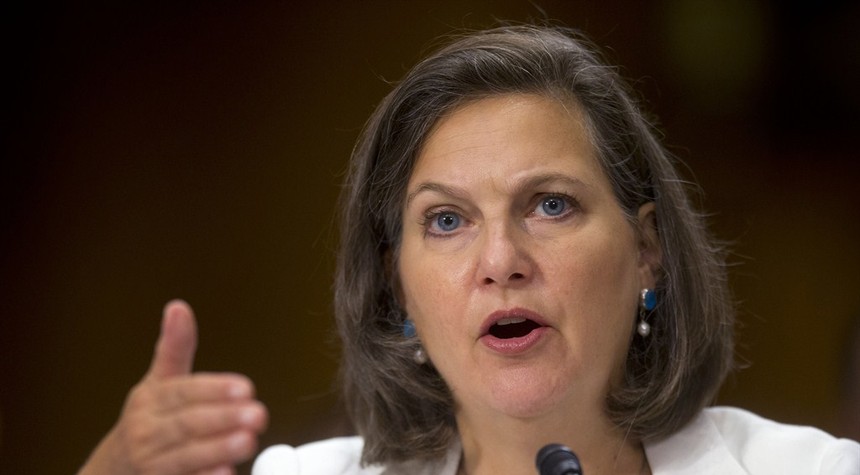Robert Califf must demand transparency and accountability from the bureaucrats.
Public trust in the U.S Food and Drug Administration (FDA) is at an all-time low, largely due to its bumbled handling of the pandemic. But its failures in tracking, testing, and combating COVID-19 reflect decades of dysfunction at the agency. The incoming commissioner, Robert Califf, has an opportunity to pull the agency out of its fiery tailspin—but only if he is willing to confront an institutional culture of perverse incentives.
In a better world, the FDA would be single-mindedly focused on protecting public health. The agency's performance would be measured by its effectiveness in achieving that goal, and its employees would seek out the best data to achieve it. Instead, the strongest incentives are to boost the bureaucracy's reputation, budget, and scope of authority—which aren't quite the same as public health gains.
Perverse Incentives
In his recent book Fixing Food, Richard A. Williams gives us a sobering glimpse at how those incentives undermine the FDA's stated mission. His account is rooted in personal experience: He worked at the FDA for nearly 30 years performing cost-benefit analyses on proposed regulations.
These analyses were ostensibly meant to help decision makers choose a course of action to maximize the public health benefit at the lowest cost to society. But as he quickly learned, delivering actual benefits to the public is not a high priority among much of the agency's leadership.
One of Williams' first assignments involved a proposed ban on an ingredient in men's hair dye that was suspected of raising skin cancer risk. After researching the issue, he determined that the ingredient was unlikely to give anyone cancer and that, because there was no alternative ingredient, the costs of banning it would be high. Rather than simply accept this assessment, a higher-up at the Center for Food Safety and Applied Nutrition (CFSAN), where Williams worked, instructed him to redo the analysis because "they haven't decided whether to ban that stuff yet, so they need one that supports a ban and one that doesn't."
Williams thought changing an analysis to reach a predetermined conclusion was tantamount to "economic prostitution." But when he refused, the center's deputy director threatened to fire him.
Faced with the threat of termination, it would be hard for even highly principled employees to disobey a superior's order, even if it violates his personal sense of ethics. (And sure enough, Williams folded.) But more often than not, employees develop an implicit understanding of what their workplace rewards, what it punishes, and how to behave in order to protect their livelihoods and advance their careers.
For example, after Williams conveyed his assessment that banning the hair dye ingredient in question would not protect anyone from cancer to his direct supervisor, his supervisor reportedly responded that protecting people was not the point, saying: "It's not necessary for us to actually protect anyone with a regulation. What we're trying to do is to stop people from attacking us." And to do that, they "have to appear to be doing something." On the bright side, "no one ever checks to see whether or not what we did actually did anything."
That pretty much sums up the work culture's incentive structure and its hazards.
Were this isolated to one rule, manager, or administration, it could be shrugged off as an outlier. But as Williams' account and other sources indicate, this type of thinking is common precisely because the same incentives operate throughout the FDA's chain of command. "Success" for FDA bureaucrats depends on how their actions help or hurt the agency's image among the politicians that approve its funding, the media that covers its activities, the industries it regulates, and the public, regardless of the effectiveness of any given policy or of the agency overall. This focus on appearances over results reflects the influence of politics.
Like all federal agencies, the FDA is inherently political. As part of the executive branch, it answers to the president, who nominates commissioners and recommends funding levels, and to Congress, which confirms commissioners and approves agency budgets. Should an agency do something that angers people in either branch, such as issuing rules they dislike or refusing to take action politicians desire, agency officials may find themselves harangued at congressional hearings, on the receiving end of inquiries, forced to resign, or facing budget cuts.
In theory, this oversight gives elected officials a way to hold unelected agency bureaucrats accountable, ensuring they stick to their mandate, enforce duly enacted laws, and deliver the public service they were established to provide. In practice, politicians mostly care about holding agencies accountable when they believe doing so advances their own political interests. And as with the perverse incentives for FDA employees, legislators see little benefit in holding agencies accountable for actual results.
How To Fix It
Restricted by statute, presidential executive orders, and absent congressional intervention, a single FDA commissioner is limited in the reforms he or she can unilaterally institute. But there is much a commissioner can do to set the stage for reform and long-lasting cultural change by changing the incentives that govern both bureaucratic and political behavior.
If the biggest problem is regulators' and political overseers' lack of interest in the effects of regulations, one solution could be to make agencies justify the regulations they promulgate. As Williams' anecdote suggests, such rules already exist—on paper. Since President Richard Nixon, both Democratic and Republican administrations have put forth requirementsthat agencies justify regulations to some degree. But without a way to verify the assumptions agencies use in their analyses or a way to hold them accountable after the fact, these cost-benefit analyses become little more than a meaningless exercise.
Beginning with President Ronald Reagan, the Office of Information and Regulatory Affairs (OIRA) within the executive Office of Management and Budget has been responsible for reviewing agency cost-benefit analyses. OIRA, with about 45 employees, is responsible for reviewing every major rule issued by agencies and can block rules that fail to comply with economic executive orders or a presidential administration's agenda.
Agencies use several methods to get around OIRA. One is to include superfluous requirements in a rule, which lets OIRA look like it is doing its job by eliminating those unnecessary requirements while preserving the parts the agency wanted in the first place. But in Williams' words, "the most common way to control OIRA is to lie to them"—or, more specifically, to fudge the numbers agencies use when producing cost-benefit analyses.
For example, in the early 1990s, after Williams had risen to the position of chief of CFSAN's economics branch, he was tasked with analyzing the costs and benefits of a proposal that would institute sweeping new requirements on seafood processors with the goal of reducing food-borne illnesses. The most dangerous of these illnesses was contamination from Vibrio vulnificus, a type of flesh-eating bacteria transmitted primarily by eating raw oysters, particularly those from the warm waters of the Gulf of Mexico. But the rule did not actually address the problem of raw oysters. So Williams found that its cost would be devastating for small seafood businesses (though not the large producers who had already voluntarily adopted the standards) and outweighed the benefits.
But the rule was a priority for the FDA commissioner, who wanted to beat the Department of Agriculture at claiming regulatory jurisdiction over seafood—and the budget that goes with it. So again, Williams was told to change his analysis. In fact, he was given the exact numbers he was to use to calculate the rule's "benefits." According to Williams, he was told to say that "it will prevent about fifty percent of the cases from occurring."
Again, Williams was told that if he refused to fudge the numbers, he "shouldn't come back to work on Monday."
Williams was forced to falsify an analysis to produce a result supportive of a predetermined decision made by higher ups. For all of this, Williams was given the highest award the agency offered its employees. Upon receiving that award, he was told that it "isn't for anything you've done, Williams; this is for what you will do!"
Fourteen years after leaving the FDA, Williams looked into seafood-related illnesses to see how the rule had performed. He found that cases of Vibrio vulnificus had not halved, as the agency had predicted; they had doubled.
The costs of this fell entirely on consumers and small businesses, while no one at the agency paid for its mistake: not the economists forced to produce erroneous cost and benefit estimates, not their bosses who compelled them to make analyses supporting a predetermined policy agenda, not the commissioner who set that agenda, and not the politicians supposedly responsible for holding agencies accountable.
Without any real negative consequences, this sort of malfeasance has grown worse. Politics and the focus on appearances have left agencies like the FDA unprepared to actually protect the public when it counts, like during a dangerous viral pandemic.
What can an FDA commissioner do to alter incentives both within the agency and for those overseeing its activities, even while constrained by the job's parameters and its political nature?
One step would be to uphold higher standards of conduct, such as rewarding employees for their commitment to the agency's public service mission and punishing those who prioritize politics. Another is to strengthen the agency's focus on results and punish falsification of data, even when doing so would support desired policy outcomes. Yet another is to boost transparency, giving greater freedom for agency scientists to speak with the media and the public (the FDA currently holds a "C" grade on scientific transparency from the Union of Concerned Scientists) and protecting whistleblowers who call out unethical behavior.
Perhaps the most important thing a commissioner can do is to bring public attention to the FDA's shortcomings and work with lawmakers to institute reforms, rather than looking for ways to protect its institutional reputation. Publicizing the FDA's flaws and failures may harm its chief's political standing and risk diminishing the agency's budget or authority, but it may be the only way to create real outside oversight.
Given his stellar reputation as a scientist, his commitment to transparency, and the mistakes he made in his last stint as commissioner, one can only hope that Robert Califf will set politics aside and do what is needed to save the FDA.













